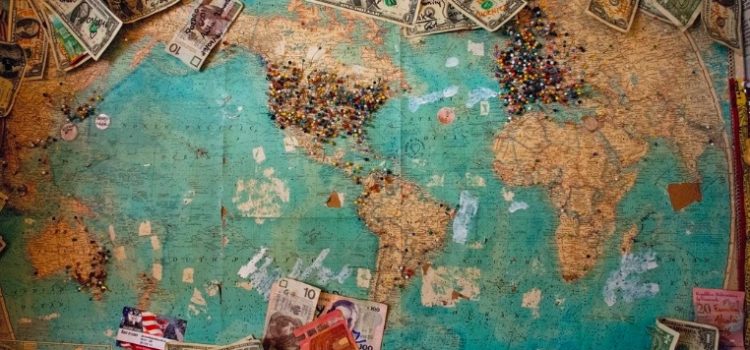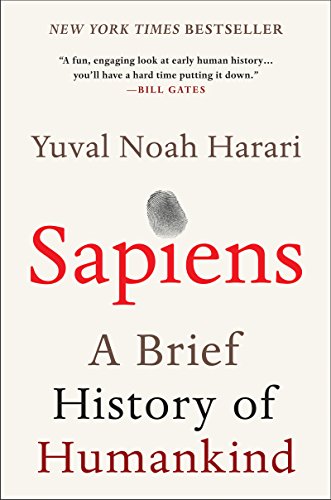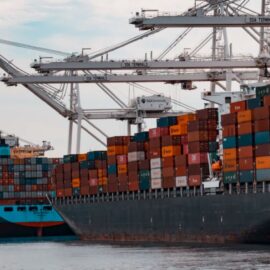

This article is an excerpt from the Shortform summary of "Sapiens: A Brief History of Humankind" by Yuval Noah Harari. Shortform has the world's best summaries of books you should be reading.
Like this article? Sign up for a free trial here .
What is the relationship between capitalism and imperialism? How did the line between them (if there is one at all) become so blurry?
Capitalism and imperialism are codependent. Capitalism allows empires to flourish, while empires often work to serve capitalism (and their own interests).
We’ll cover how capitalism and imperialism are intimately linked and look at the history of their relationship.
The Codependency of European Capitalism and Imperialism
Columbus’s voyage was a turning point in the history of how we view our own ignorance. This set off the Scientific Revolution. The voyage was also a turning point in how humans viewed credit. Columbus’s voyage was immensely successful. His discoveries allowed Spain to conquer America and establish gold and silver mines and tobacco plantations. This success made it easier for other explorers to get their trips financed by governments and big businesses. Everyone wanted to make money off the next big discovery, so governments had to trust explorers.
This trust paid off. Explorers used credit to travel and make new discoveries. These discoveries resulted in the colonization of new lands. These colonies provided new sources of wealth. These profits increased the trust of governments in explorers. And the governments handed out more credit. Capitalism and imperialism worked in tandem.
One reason Europe took over the world while Asian empires and dynasties watched passively was that Asian emperors despised merchants and kept their distance from them. There was no synergy of capitalism and imperialism. Instead of doing business with merchants, Asian rulers implemented higher taxes to generate more money. In contrast, European kings and generals adopted the perspective of the merchants. They knew that while no one wanted to pay taxes, everyone was happy to invest in the empire’s conquests in the hopes of making their fortunes.
The capitalism and imperialism system was mostly successful, but not all ships came back with new wealth and discoveries, and many didn’t come back at all. Limited liability joint-stock companies provided the solution. They allowed an investor to risk only a small amount of money by pooling the money of a group. The payoffs for the individual were often huge.
Governments Serving Capitalism
Clearly, capitalists have served the government in the capitalism and imperialism relationship. But history also provides numerous examples of the government serving capitalists, doing their bidding. The balance of power started to shift in the 18th and 19th centuries, prompting the question, “who really runs the nation? The government or the wealthy?” Let’s look at just one of many examples of money dictating law.
Capitalism and Imperialism Example: The First Opium War
In the 19th century, the British East India Company (a joint-stock company) exported opium and other drugs to China. Millions of Chinese became addicted to opium, wreaking havoc on the nation, and in the 1830s the Chinese government decided to ban British drug merchants from doing business in China.
The merchants ignored the ban. In response, the Chinese destroyed their drug cargos. This initiated the First Opium War (1840-42). Many British government officials held stock in the drug companies, so Britain declared war on China, fighting, they said, for free trade.
When the British won, not only did China have to agree to let the British drug merchants do business in their country, but they had to give Britain control of Hong Kong. At this point, about 40 million Chinese, a tenth of the population, were addicts.
The British were willing to sacrifice the health and economic freedom of the Chinese to protect the capitalist system and its profits. This shows the power of the capitalism and imperialism relationship.
Capitalism and Imperialism Example: The Slave Trade
The European slave trade was also largely based on the relationship of capitalism and imperialism.
When Europeans developed large sugar plantations in America, Europeans started eating more and more sugar. The demand for sugar in Europe skyrocketed. But extracting sugar was labor-intensive, and not many paid workers wanted to spend their days under a hot sun in malaria-infested fields. They demanded a high payment.
But increasing worker wages meant increasing the cost of sugar, which would have made it too expensive for most Europeans. So the plantation owners got rid of payment altogether and exchanged contract laborers for slaves. This made sugar cheaper, and it also made it a profitable business to have a share in. In the 18th century, investments in the slave trade could yield 6% per year.
The Atlantic slave trade wasn’t necessarily the result of racism. People who owned plantations and Europeans who bought stock lived far from the plantations and never thought much about the slaves. It was the money in their pockets that kept the slave trade going.
———End of Preview———

Like what you just read? Read the rest of the world's best summary of "Sapiens" at Shortform . Learn the book's critical concepts in 20 minutes or less .
Here's what you'll find in our full Sapiens summary :
- How Sapiens outlived and outlasted the 8+ other human-like species on Earth
- The 3 critical revolutions in human existence that led to our domination of the planet
- How much of what powers our world today is really just a shared mass delusion
- What the future of humanity might look like







This article is important in clarifying the linkages of the age of discovery, capitalism, colonialism and imperialism and how they are essential to the growth of predatory economics. exploitation, looting and capital flight from Africa. the Americas and Asia. This established rapacious economic system created economic underdevelopment of the Global South.